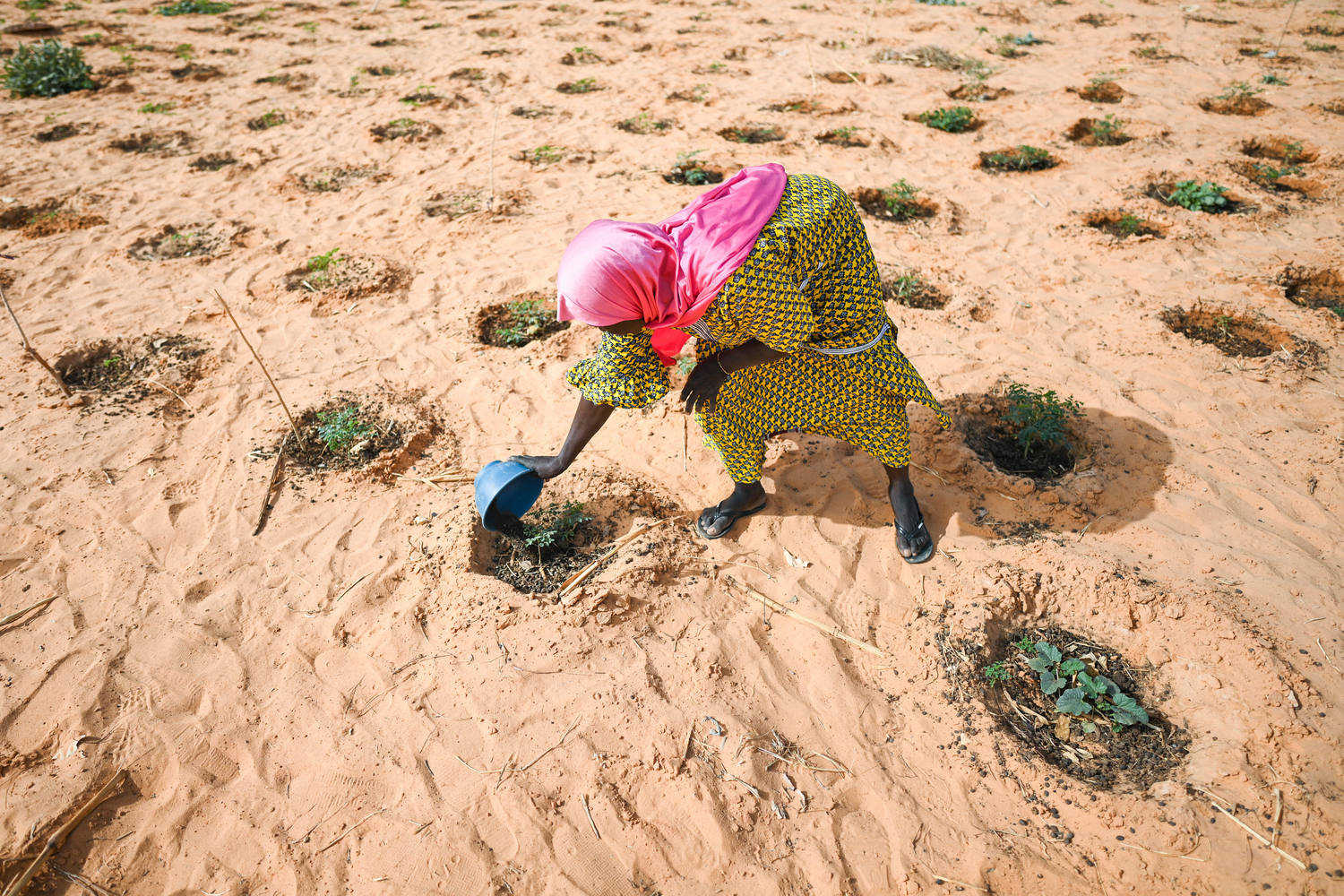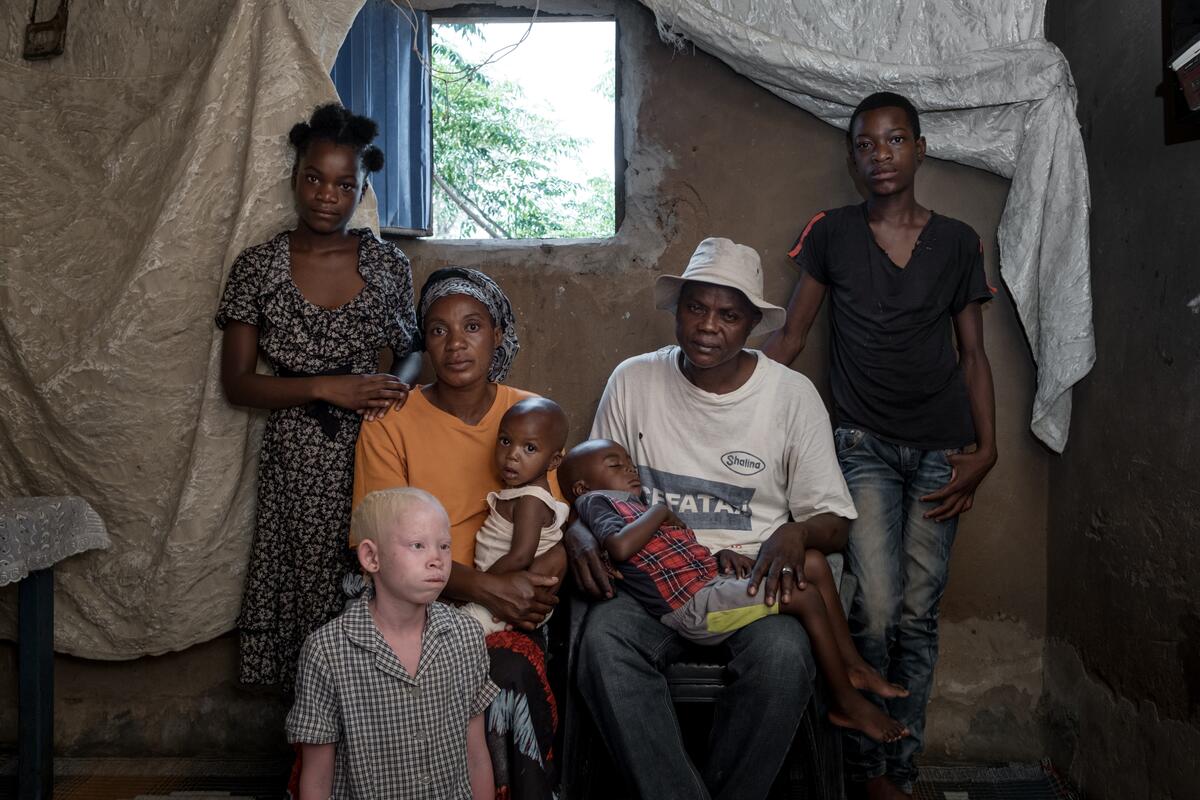UNHCR helps Afghan villagers to improve irrigation system
UNHCR helps Afghan villagers to improve irrigation system

AMBARKHANA, Afghanistan, July 9 (UNHCR) - The food basket of eastern Afghanistan is filling up slowly but surely as returnees and water projects turn abandoned marshland back into fertile farmland.
With its moderate climate, proximity to major rivers and elaborate irrigation system, Nangarhar province in eastern Afghanistan had always been known for its agriculture. However, the Soviet invasion of late 1979 and the ensuing civil war drove many villagers into neighbouring Pakistan, leaving their land untended. The canals that fed the crops clogged up with mud, grass and wild trees. Water seeped into the farmlands and turned them into marshes.
Ambarkhana village in Nangarhar's Batikot district, 50 kilometres from the border with Pakistan, was a classic example of such neglect. But thanks to a project funded by the UN refugee agency, the canals have been cleaned and the mountainous land is flourishing again.
"Due to the ongoing drought, shortage of water and blockage of the irrigation canal, we were not able to get even one season of harvest from the land," recalled Haji Samiul Haq, the head of the local shura (council) who approached UNHCR to start the project. "But after the excavation of the spring and cleaning of the canal last year, the project enabled us to get two seasons' harvest."
Villager Gul Ahmad, who was working on his farm, added, "Given the current food crisis, hundreds of people would have abandoned their homes by now either for bigger cities within Afghanistan or for neighbouring countries, particularly Pakistan, if we had had no access to water."
Zafar, a 55-year-old who returned last year from Katcha Gari camp in north-western Pakistan, agreed: "Improving the irrigation system helped us to enhance our income. Thanks to UNHCR for improving our water resources and enabling us to live in our homeland."
At least 60,000 returnees living in 26 sub-villages in Ambarkhana have benefited from the US$75,000 project. The World Food Programme supported it by providing food and cash in exchange for work by the villagers, many of them returnees.
"Small-scale, but essential, projects cleaning water canals and improving the irrigation system have a great impact on the life of people who are particularly dependent on agricultural products," said Haji Samiul Haq.
Nonetheless, many basic needs go unmet, and access to water remains highly difficult. The villagers in this remote area traditionally relied on the karez system, an underground water network that was damaged by the protracted conflict. Most of the families now get their water from tankers.
The situation has been exacerbated by the recent return of more than 10,000 people to the village after Katcha Gari and Jalozai camps were closed in Pakistan.
Elsewhere in eastern Afghanistan, some 5,000 families who recently returned from Jalozai camp are living in poor conditions in a number of makeshift settlements. They cite tribal conflicts, insecurity, landlessness and unemployment as the main obstacles to their return to their places of origin.
The eastern region, particularly Nangarhar, Kunar and Laghman provinces, have received more than 60 percent of all returns so far this year.
Mohammad Nabi is one of the new squatters in lower Sheikh Mesri, a recently-opened spontaneous settlement in Nangarhar. "I did not find the relocation option in Pakistan attractive," he said, referring to the alternative to repatriation when Jalozai camp was closed in May this year. "Yet I cannot go back to my home village of Torghar in Khogyani district due to severe living conditions including the lack of access to road and water."
Drought and the lack of food security are also affecting millions of vulnerable Afghans in far-flung areas of the country's north and west. Some people have had to leave their homes because of these problems, including an estimated 1,800 families in Balkh province.

Sustainable return remains a long-term challenge that UNHCR and other humanitarian organizations are able to address only initially. The answer to socio-economic problems for all Afghans lies in the success of the Afghanistan National Development Strategy endorsed in Paris last month.
A subsequent conference hosted by the government of Afghanistan and UNHCR is scheduled this November in Kabul to focus on return and reintegration challenges.
By Mohammed Nadir Farhad in Kabul, Afghanistan








